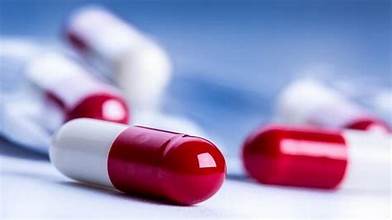The Impact of Blood Sugar Control Drugs on Your Health
Diabetes is a chronic disease that affects millions of people worldwide. It is characterized by high levels of glucose in the blood, which can lead to serious health complications if left uncontrolled. To manage diabetes, doctors often prescribe blood sugar control drugs, also known as antidiabetic medications.
These drugs work by lowering blood sugar levels and helping patients maintain healthy glycemic control. However, like any medication, they can have both positive and negative effects on your health. In this article, we will explore the impact of blood sugar control drugs on your health and provide some tips for managing your diabetes effectively.
Understanding Blood Sugar Control Drugs:
What Are Blood Sugar Control Drugs?
Blood sugar control drugs are medications that help manage diabetes by lowering blood sugar levels. They are typically prescribed to patients with type 2 diabetes, as well as some patients with type 1 diabetes. These drugs work in different ways, such as stimulating insulin production, increasing insulin sensitivity, or slowing down the absorption of glucose in the body.
Types of Blood Sugar Control Drugs
There are several types of blood sugar control drugs, including:
Biguanides:
These drugs work by reducing the amount of glucose produced by the liver and increasing insulin sensitivity.
Sulfonylureas:
Thiazolidinediones:
DPP-4 inhibitors:
SGLT2 inhibitors:
GLP-1 receptor agonists:
Insulin: This hormone is used to replace or supplement the body's natural insulin production.
The Positive Effects of Blood Sugar Control Drugs
Lowering Blood Sugar Levels
The primary goal of blood sugar control drugs is to lower blood sugar levels and maintain healthy glycemic control. By doing so, these drugs can help prevent serious health complications associated with diabetes, such as heart disease, nerve damage, and kidney disease.
Improving Insulin Sensitivity
Some blood sugar control drugs, such as thiazolidinediones and GLP-1 receptor agonists, can improve insulin sensitivity. This means that the body can use insulin more effectively, which can help lower blood sugar levels and reduce the risk of complications.
Reducing the Risk of Hypoglycemia
Hypoglycemia, or low blood sugar, is a common side effect of diabetes medications. However, some blood sugar control drugs, such as DPP-4 inhibitors and GLP-1 receptor agonists, have a lower risk of causing hypoglycemia compared to other medications. This can be beneficial for patients who are at risk of experiencing low blood sugar levels.
The Negative Effects of Blood Sugar Control Drugs
Side Effects
Like any medication, blood sugar control drugs can cause side effects. These can range from mild symptoms, such as nausea and diarrhea, to more serious side effects, such as liver damage and heart problems. It is important to discuss any potential side effects with your doctor before starting a new medication.
Interactions with Other Medications
Some blood sugar control drugs can interact with other medications, including over-the-counter drugs and supplements. This can affect the effectiveness of the medication or cause unwanted side effects. It is important to inform your doctor of all the medications and supplements you are taking to avoid any potential interactions.
Cost
Blood sugar control drugs can be expensive, especially for patients who do not have insurance coverage. This can make it difficult for some patients to afford their medication, leading to poor glycemic control and an increased risk of complications.
Tips for Managing Your Diabetes Effectively
Follow Your Doctor's Instructions
It is important to follow your doctor's instructions when taking blood sugar control drugs. This includes taking the medication as prescribed, monitoring your blood sugar levels regularly, and reporting any side effects or concerns to your doctor.
Maintain a Healthy Lifestyle
In addition to taking medication, it is important to maintain a healthy lifestyle to manage your diabetes effectively. This includes eating a balanced diet, exercising regularly, and managing stress levels. These lifestyle changes can help improve glycemic control and reduce the need for medication.
Monitor Your Blood Sugar Levels
Regularly monitoring your blood sugar levels can help you understand how your body responds to medication and make any necessary adjustments. It is important to work with your doctor to determine the best times to check your blood sugar levels and what your target range should be.
Educate Yourself
Educating yourself about diabetes and its treatment can help you make informed decisions about your health. This includes understanding the different types of blood sugar control drugs, their potential side effects, and how to manage your diabetes effectively.
Conclusion
Blood sugar control drugs can have both positive and negative effects on your health. While they are essential for managing diabetes, it is important to work closely with your doctor to find the right medication and dosage for your specific needs.
By following your doctor's instructions, maintaining a healthy lifestyle, and regularly monitoring your blood sugar levels, you can effectively manage your diabetes and reduce the risk of complications. Remember to always consult with your doctor before making any changes to your medication or treatment plan.

